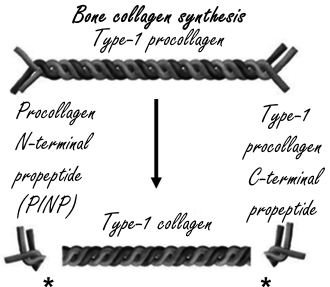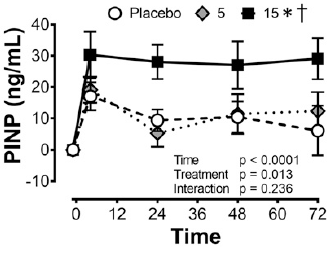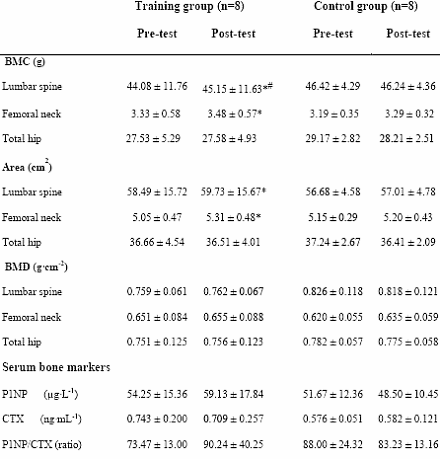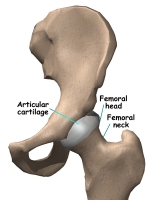|
Gelatin makes intensive exercise even more effective against bone loss
If you want to make your bones stronger, exercise. The more intensive the better. Strength training is fine, and so are plyometrics or running. And if you're a perfectionist, take a portion of gelatin an hour before your sessions. We found this suggestion in a human study that Australian sports scientists published in the American Journal of Clinical Nutrition in 2017.
Exercise, collagen & bones
Strong bones have strong collagen, and it is mainly through the stimulation of the production of collagen that keeps bones strong. The researchers wanted to know whether supplementation with gelatin, which is made from the collagen from the bones of cows and pigs, increases the effect of intensive physical activity on the body's production of collagen.
Both collagen in bones and gelatin consists of the amino acids glycine, proline and hydroxylproline.

Study
The researchers had 8 healthy male students on a multiple occasions rope skipping for 6 minutes, three times a day, three days in a row. This kind of physical activity has been proven to stimulate the production of collagen in the bones.
On one occasion the men drank a placebo one hour before they exercised. The other time they were given a drink with 5 grams of gelatin, another time they drank 15 grams of gelatin. Each time 48 milligrams of vitamin C were added to the gelatin.

Results
Rope skipping increased the concentration of the protein amino-terminal propeptide or collagen I [PINP] in the blood. This indicates that the body has increased its collagen manufacture. Supplementation with the high dose of gelatin augmented the increase.

Conclusion
"The current data strongly support the hypothesis that starting an exercise bout 1 h after consuming 15 g gelatin results in greater collagen synthesis in the recovery period after exercise", the Australians wrote. "This is most evident in comparing the PINP concentrations 4 h after exercise in the placebo and 15-g gelatin groups."
"The data clearly show that gelatin supported collagen synthesis after exercise. Although exercise is known to increase collagen synthesis and the production of PINP in tendons, it is highly unlikely that the increase in PINP in the blood is due to collagen synthesis in tendon, ligaments, or cartilage. Instead, PINP in the blood is generally used as a marker of bone metabolism because of its higher turnover rate."
In summary, this report demonstrates, for the first time to our knowledge, that supplementation with gelatin in humans augments collagen synthesis after exercise. The accelerated rate of collagen synthesis was observed as early as 4 h after the first bout (5 h after gelatin supplementation) and was maintained over the 72 h of the study."
"These data suggest that adding gelatin and vitamin C to an intermittent exercise program could play a beneficial role in injury prevention and tissue repair."
Source:
Am J Clin Nutr 2017;105:136-43.
More:
This is what collagen supplements do to your knee cartilage 25.04.2012
Collagen supplement reduces pain in arthritic knees 12.04.2012
Collagen supplement eases athletes' sore joints 26.03.2012
Archives:
Collagen & Gelatin
Building Bones
|






